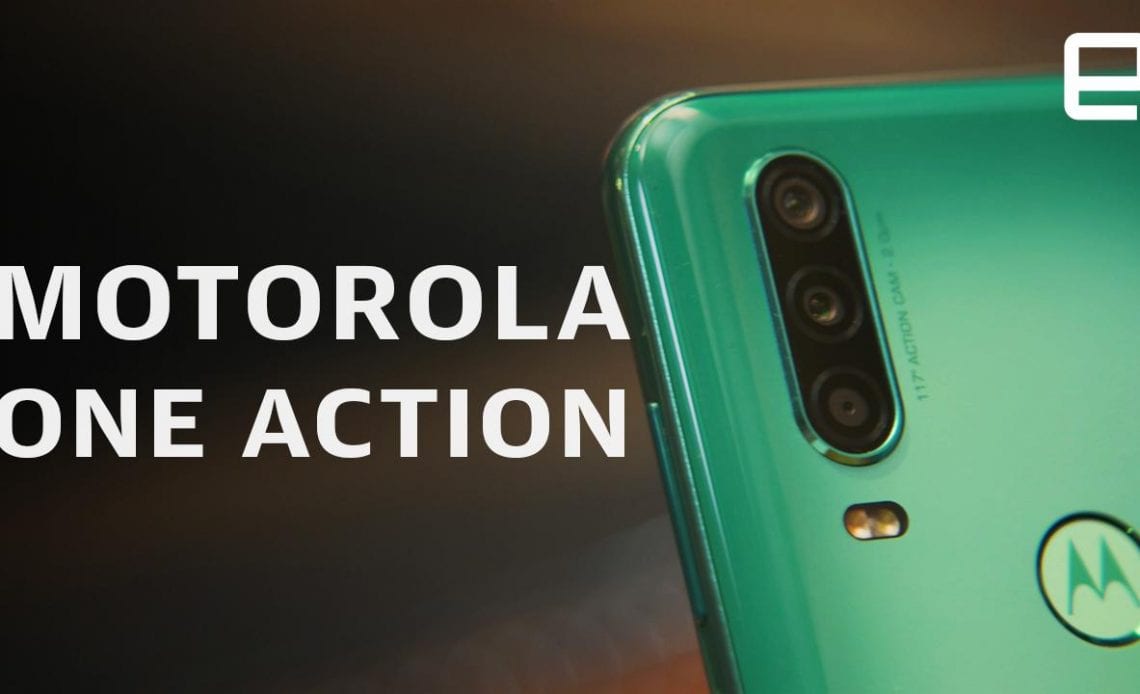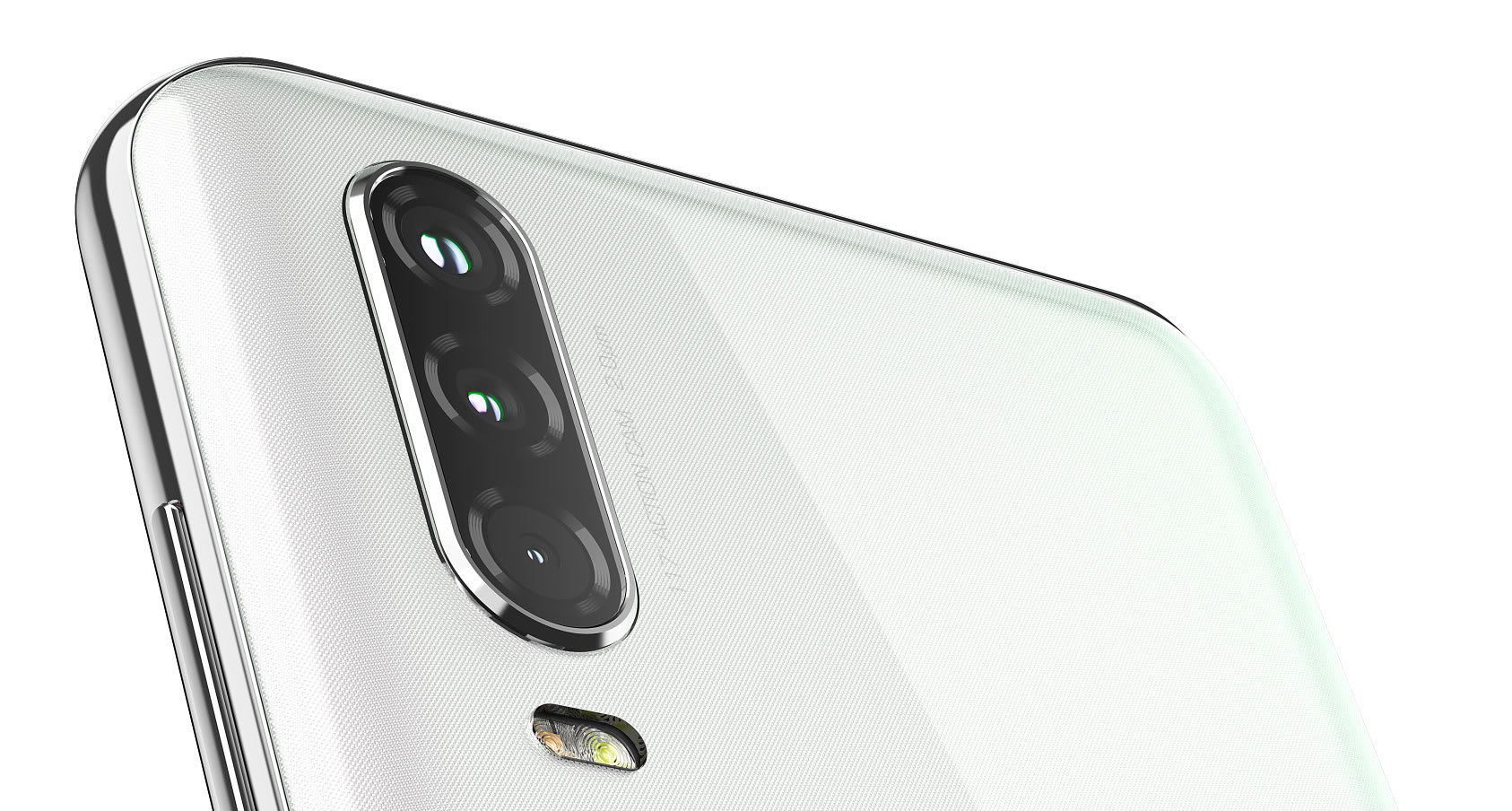
Apart from its real-but-not-ready foldable, Motorola is best known these days for churning out respectable smartphones for people on a budget. Those devices — like those in the Moto G and E series — offer some of the best performance you can find for under $300, and over the past year, they’ve helped Motorola creep steadily toward profitability. They aren’t, however, all that interesting as phones.
Motorola gets that, and it’s changing. Those classic G and E product lines aren’t going anywhere, but the Lenovo-owned smartphone brand has been breaking out of its rut lately with the help of its Motorola One devices — more stylish mid-range phones with an emphasis on novel features. And of Motorola’s small handful of One devices, the new Motorola One Action is easily the strangest.
That’s not because it uses one of Samsung’s octa-core Exynos 9609 chipsets, because it shares that trait with the existing One Vision. It’s not because of its 6.3-inch, 21:9 CinemaVision display, either — these extra-long screens are slowly becoming more common. No, what makes the One Action so pleasantly bizarre is its triple-camera setup: There’s a standard 12MP sensor with an f/1.8 aperture for all your day-to-day shooting, plus a 5MP depth sensor to make sure your portraits have appropriately blurry backgrounds. The last sensor, however, isn’t meant to be used for photography at all; it’s a 16MP wide-angle video sensor that captures 117 degrees worth of whatever’s in front of it. The thing is, it’s mounted the wrong way here.
According to Motorola’s market research, many people — too many, perhaps — shoot most of their videos while their phones are held upright. Sure, that means these people don’t have to two-hand their mobile cameras when some interesting is happening in front of them. Unfortunately, that also means the videos in question don’t actually look very good when you try to view them in landscape mode or on external displays. To address that, Motorola stuck this video camera into the phone rotated 90 degrees to the right, so that videos shot while the One Action is being held vertically fill the entire screen when you review them later. And the weird stuff doesn’t end there.
Motorola is also pushing this third, video-only sensor as an action camera — hence the name. That’s largely because of the electronic video stabilization Motorola built in here, which to their credit, did seem to do a good job reducing shake and jittering in the test footage we shot. The demo space Motorola set up was pretty dark, too, so it helped that the One Action effectively treats clusters of 4 pixels on that sensor as one for improved brightness. I sort of doubt it would fare as well as, say, the super-steady video mode found in premium Samsung phones, but based on a little hands-on time, the feature fares more respectably than you might think at first. Not bad for a phone that’ll only cost €259 (about $287) when it goes on sale this week.
This is exactly the kind of weird camera stuff Motorola has been leaning into lately, so the video gimmick here almost doesn’t register as a surprise. I guarantee people who use that video camera for the first time will be surprised, though, because they’ll see that wide-angle view bounded by lots of dead space above and below. Even though I knew exactly what to expect when I started to test the camera, I still got the immediate impression that I was doing something wrong or that the phone was acting up.
The resulting 1080p footage was indeed expansive and correctly rendered, but what you see while shooting it runs counter to everything you’d expect after using a smartphone camera for years. No wonder Motorola didn’t try to pull off a feature like this in something like a Moto G — in North America at least, Motorola’s mainstream cheap phones are especially popular among older men, and I can’t help but think of the frantic phone calls I’d get from my dad if I gave him a One Action to use.
For better or worse, the rest of the One Action package is fairly standard: It’ll ship with 4GB of RAM, 128GB of onboard storage (which you can expand upon with a microSD card), a non-removable 3,500mAh battery and a rear-mounted fingerprint sensor. Oh, and despite what the name suggests, the Motorola One Action won’t actually be an Android One device everywhere — it’ll run that super-clean version of Android in markets like Brazil, Mexico and Europe, but Americans will instead get the usual Motorola tweaks and interface layered on top of Android Pie.
I’ve spent a lot of time here calling the Motorola One Action weird, and it certainly is. The rationale that went into it, however, was anything but. This smartphone brand has finally started to turn a profit thank its to cheap devices like the Moto G family, but by throwing caution to the wind and trying outlandish tricks in its Motorola Ones, Motorola hopes to speak to a new kind of customer. These aren’t people who buy smartphones because of their utilitarian value — these are younger people who want ambitious features that could change what they think of Motorola in the future. In a way, the One Action isn’t just a smartphone with GoPro ambitions; it’s a clear indicator of Motorola’s unabashedly interesting future.
Author: Chris Velazco
Source: GSMArena action cam, action camera, gear, hands-on, lenovo, mobile, motorola, motorola one, motorola one action, smartphone




